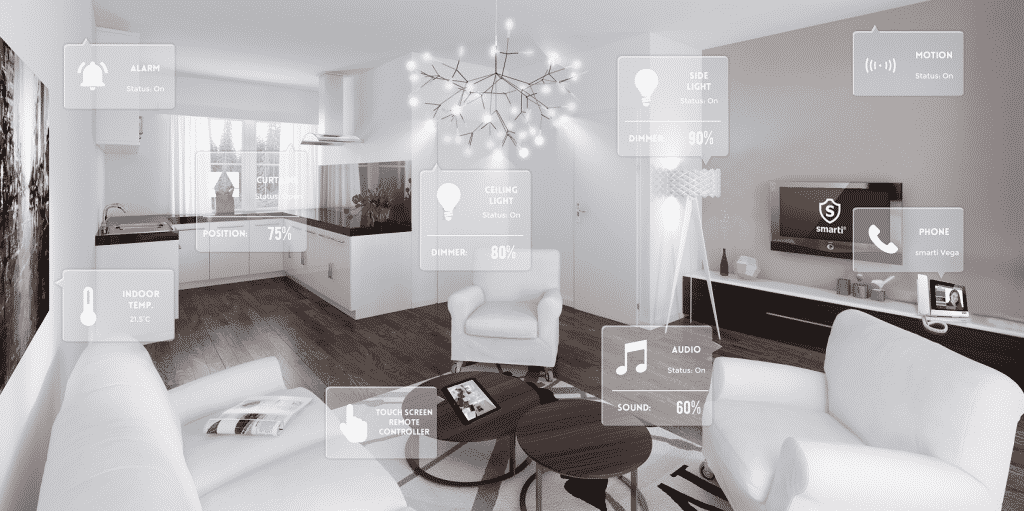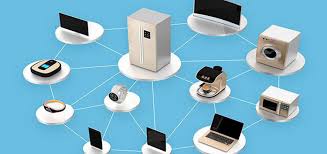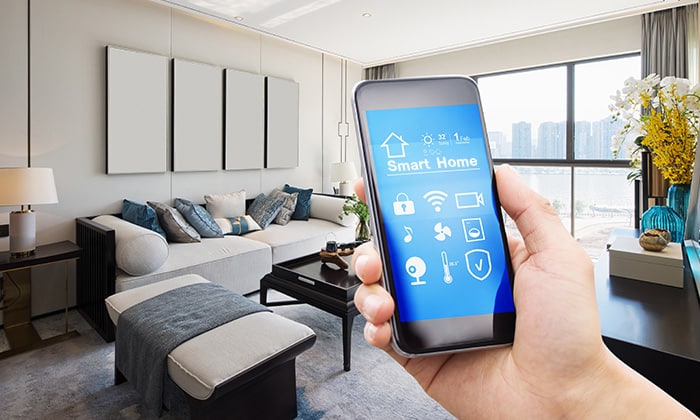Smart homes are increasingly being appreciated across the world. They involve the use of some trigger words to command action within the home. Smart homes have been helpful in the simplest activities like opening and closing doors, preparing smoothies, turning on and off the air conditioner, and even turning on and off the electronics within the home.
Perhaps we need to understand deeper that smart home technologies use sounds and recordings to act on prompts. For example, if you do not command the door to open it will not; this means smart home devices eventually record familiar voices and cannot act on voices they do not recognize.
Importance Of The Smart Home
Smart homes generally function to make life easier and manageable. If you are unwell and you have an intelligent voice command, you do not have to go through the trouble of blending your juice, and the smart home devices do it for you.
Smart home devices have brought in a great deal of security into the homes. This is because only the owners can be able to command them into any activity. Even for the owners, a change of voice due to illness or tooth removal results in the smart commands being ‘disobeyed’ because technically, the device does not recognize you.
The echo recorders have been helpful in taking messages from other family members while you are away. Instead of having to write down on paper, a voice recorder takes the message, and it is relayed to you for action. Essentially, the smart home devices have helped people maintain good communication.
So, how much information can be taken by the smart home devices? And for the voice recorders, how much information do they record? For the echo devices, how much of the command prompt do they save and relay? And on top of all this, can the information in your smart home devices be used against you in court?

Can Your Smart Home Be Used Against You In Court?
The answer to this question is yes and no.
Yes, information gathered from the smart devices can be used against you in the sense that, if you used the echo devices to ask for advice on something illegal that you had done, the information could easily be retrieved from the recorders. Most of these devices have been set in such a way that occasionally you need to delete the recordings to allow for more space or otherwise. Which even if was the case, the mother companies of the devices like Amazon, Google, and Apple can be able to access the information and retrieve it.
Let us say your command word is ‘Alexa,’ and you just spilled coffee on the carpet. You will go, ”Alexa, how do I clean coffee off the carpet?” and the smart device will give you all the tips and guidelines to clean your carpet successfully. But let us assume you committed a crime and killed someone in your house. You will need to ask Alexa for tips of cleaning the mess and disposing of the body if you do not want to be caught. And Alexa will give you top tips to go about it.

This Is Crazy! What Else Is There?
If police catch up with you, they can be able to retrieve the recordings and charge you with murder. If you deleted the files, they would ask for them from the manufacturer of your device since. Usually, they store messages too. In that case, your smart home will be used against you in the court of law.
Alternatively, your smart house may not be used against you in the court of law if you did not prompt it with the trigger word. This means it did not record your words all along and nobody can retrieve what is not there in the first place.
Again, these smart home devices come with privacy and confidentiality statements that you sign or agree to before taking up the devices. For the sake of their clients, most companies would not give up these recordings citing the privacy statements. The policies protect you from being charged in court using the recordings on the smart devices. Of course, if you agree to their release, then access can be granted.

What You Need To Know About The Smart Devices
On purchasing and installing the smart devices in your home, it is vital to read and understand the privacy policy before agreeing to the deal. This is because some privacy policies may be shady and this technically means someone is listening in on you while you are home. While that sounds creepy, most companies will provide for agreements only to retrieve if it is a serious matter, but otherwise, nobody has any listening rights. The clarity of the privacy policies can always be sought out from elsewhere so that you make an informed decision of installing them.
There are cases in the past that have put major companies that manufacture these smart devices in jeopardy regarding privacy policies. Some companies have lost business due to such instances, and people have uninstalled smart devices. This came up after a claim that Samsung Smart TVs were able to record happenings in the home while switched off. Of course, that feeling that you are being recorded or watched gets eerie.
While we await official statements from major companies, as well as clarity on all the information regarding the devices, it is only safe to limit the amount of information we give out to our smart home devices like the Echo voice commands and Google Assistant, etc.
It is also advisable to unplug the smart devices once in a while or to delete the recordings often, not to create more space, but to minimize the risk of having your information copied elsewhere without your consent. If you are caught in a place where the smart devices can be used against you in court, talk to a lawyer for more advice since they have what it takes to defend you even from yourself. So much for smart home devices!
